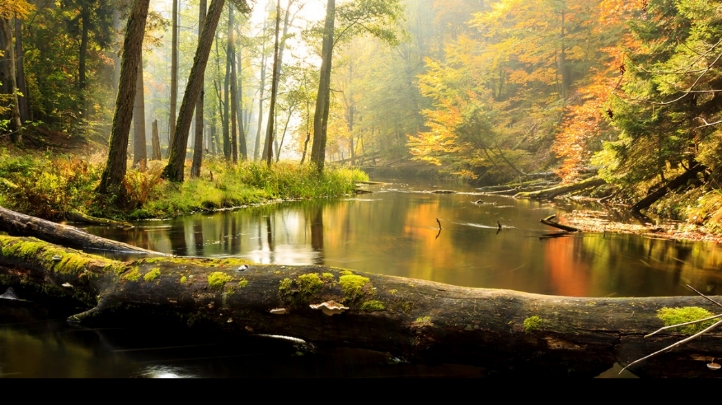A quarter of the UK’s land could be restored to nature, making a significant contribution towards cutting the nation’s carbon emissions to zero, under a new rewilding proposal.

Subsidies to restore woodlands and meadows would also boost wildlife, says Rewilding Britain
The plan, published by Rewilding Britain, calls for billions of pounds in farm subsidies to be redirected towards creating native woodlands and meadows and protecting peat bogs and salt marshes. The group says wildlife would benefit, farmers would not lose money and food production need not fall.
The environment secretary, Michael Gove, is in favour of natural solutions to the climate crisis and huge losses of wildlife, and the government has pledged it will ensure “public money is spent on public goods” after the UK leaves the EU’s subsidy regime.
Currently, these subsidies total £3bn a year, with 13% going to environmental schemes. The new plan anticipates £1.9bn being used to support action on global heating and wildlife. The scheme would create 2m hectares (4.94m acres) of new woodland and 2m hectares of species-rich meadows, and ensure full protection of the UK’s 2m hectares of peat bogs and heaths.
These ecosystems would absorb and store carbon dioxide equivalent to 10% of the UK’s annual emissions. The government’s official climate advisers reported this month that UK emissions must fall to zero by 2050. But the Committee on Climate Change said some activities, such as flying, would still cause emissions, meaning tree growing and other measures to suck CO2 from the air are vital.
Proposed rewilding payments to restore habitats and absorb carbon
Subsidies per hectare, per year:
- New native woodland, £510
- Salt marsh, £320
- Peat bogs and heath, £280
- Ponds and lakes, £205
- Meadows and grasslands, £150
Rebecca Wrigley, the chief executive of Rewilding Britain, said 85,000 people had already signed a parliamentary petition backing natural solutions to the climate emergency, with support strongest in rural areas.
he said being paid to plant woodlands and meadows or protect peat bogs could be important fresh sources of income for farmers. “Farmers will certainly not be worse off – it is about diversifying and providing alternatives,” she said. “No one is going to be required to do anything on their land that they do not choose to do.”
The proposals would revive wildlife in the UK, one of the most nature-depleted countries in the world. “The beauty of rewilding is that it could also benefit biodiversity,” Wrigley said. “People have forgotten what native habitats [such as forests] really look like, and how abundant they once were.”
Wrigley said rewilding such a large proportion of the UK did not have to involve an overall reduction in food production. She pointed to examples such as the Knepp estate in Sussex and to millions of hectares of low-grade agricultural land, much of it in the uplands. There are 1.8m hectares of deer stalking estates and 1.3m hectares of grouse moor estates, the report notes.
The report suggests rates of subsidy based on how many tonnes of CO2 are captured, multiplied by an indicative carbon price of £40 per tonne (about double the UK’s current price).
This would make new woodlands the most valuable at £512 per hectare per year. Enhancing and restoring peat bogs, heaths and salt marshes would all earn about £300 per hectare per year. These rates are lower than current EU subsidies for planting winter food for seed-eating birds (£640) and a nectar flower mix for pollinators (£524). Rewilding Britain said more ambitious and expensive schemes for restoring habitats could be paid for with a nationwide carbon tax on emissions.
A spokesman for the Department for Environment, Food and Rural Affairs (Defra) said: “Climate change is one of the most urgent and pressing challenges we face today.” He said tackling the climate crisis was one of the “public goods” for which farmers would be rewarded in the future, and was also a key part of a long-term vision for a more productive, low-carbon farming sector.
The National Farmers Union wants agriculture to reach net zero emissions by 2040. Guy Smith, the NFU’s deputy president, said this month: “Acting to tackle damaging climate change is vital. However, we will not halt climate change by curbing British production and exporting it to countries which may not have the same environmental conscience.”
Wrigley said ministers were moving in the right direction but current schemes were far too small in scale. “The UK parliament has declared a climate emergency, [so] the response has to be decisive and rapid,” she said.
Damian Carrington
This article first appeared on the Guardian
edie is part of the Guardian Environment Network
